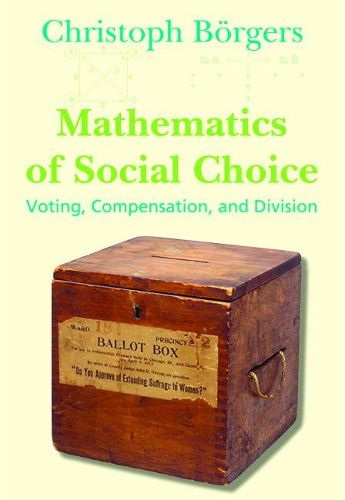Readings Newsletter
Become a Readings Member to make your shopping experience even easier.
Sign in or sign up for free!
You’re not far away from qualifying for FREE standard shipping within Australia
You’ve qualified for FREE standard shipping within Australia
The cart is loading…






Mathematics of Social Choice is a fun and accessible book that looks at the choices made by groups of people with different preferences, needs, and interests. Divided into three parts, the text first examines voting methods for selecting or ranking candidates. A brief second part addresses compensation problems wherein an indivisible item must be assigned to one of several people who are equally entitled to ownership of the item, with monetary compensation paid to the others. The third part discusses the problem of sharing a divisible resource among several people. Mathematics of Social Choice can be used by undergraduates studying mathematics and students whose only mathematical background is elementary algebra. More advanced material can be skipped without any loss of continuity. The book can also serve as an easy introduction to topics such as the Gibbard-Satterthwaite theorem, Arrow’s theorem, and fair division for readers with more mathematical background.
$9.00 standard shipping within Australia
FREE standard shipping within Australia for orders over $100.00
Express & International shipping calculated at checkout
Mathematics of Social Choice is a fun and accessible book that looks at the choices made by groups of people with different preferences, needs, and interests. Divided into three parts, the text first examines voting methods for selecting or ranking candidates. A brief second part addresses compensation problems wherein an indivisible item must be assigned to one of several people who are equally entitled to ownership of the item, with monetary compensation paid to the others. The third part discusses the problem of sharing a divisible resource among several people. Mathematics of Social Choice can be used by undergraduates studying mathematics and students whose only mathematical background is elementary algebra. More advanced material can be skipped without any loss of continuity. The book can also serve as an easy introduction to topics such as the Gibbard-Satterthwaite theorem, Arrow’s theorem, and fair division for readers with more mathematical background.